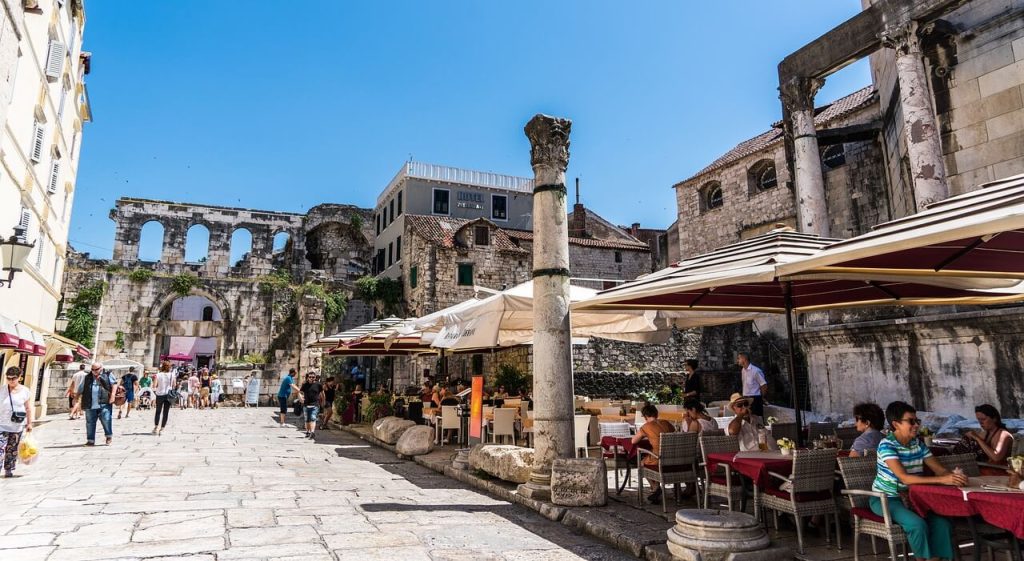HRT reports that hoteliers are more optimistic before the beginning of June than a few weeks ago because the epidemiological situation and the state of reservations and sales are better than last year. More tourists are expected around Corpus Christi, which will mark the beginning of the season.
“The epidemiological situation is improving, the framework of the border crossing regime has been defined, bilateral agreements are being worked on, and the vaccination rate is growing. With the easing of measures, optimism and a desire to travel grow, immediately evident in reservations. In some periods and some types of accommodation capacities, primarily camping and hotels of higher categories, reservations are approaching the figures from 2019,” says the director of UPUHH (Association of Employers in the Croatian Hotel Industry) Bernard Zenzerović.
June without maximum occupancy, but in July and August, they are hoping for tourist crowds
However, in June, hoteliers do not expect maximum occupancy, but they hope for real tourist crowds in July and August and that they will have all facilities open. They are convinced that this year they can achieve a very good post-season, unlike last, when it was abruptly interrupted, though it is largely dependent on neighboring countries’ travel regimes, especially Slovenia and Austria.
“Tourist demand is generally much better than last year. The largest demand comes from our traditional markets going to car destinations in the northern Adriatic regions. On the other hand, the situation is more uncertain in the south, which is more related to slower-recovering air traffic. Still, hoteliers believe that this will improve with the announced airlines and easing of restrictions, especially for British tourists, and that in the south, the results will be better than last year,” says Zenzerović.
He also states that traditional markets, such as Germany, Austria, Slovenia, Poland, and the Czech Republic, are the ‘most active’ in the demand and reservations of hotels. He estimates that the reservations of domestic tourists are ‘very well maintained.’
The strongest booking and sales channels are direct hotel channels, especially because of the flexibility that hoteliers offer this way, which guests expect due to the situation while booking through tour operators is much slower than in the years before the pandemic.
As they expect better physical traffic with more arrivals and overnight stays of tourists, hoteliers expect a generally better summer and business year than last year, which is primarily based on greater expected stability and longer season duration.
A ‘war’ on prices in the Mediterranean can be expected, but not a significant increase or decrease
“Although we have vaccines this year and vaccinations are growing rapidly, last year’s experience must be a reminder that we must be disciplined and do our homework better this year,” says the director of UPUHH, emphasizing that this year, unlike last year, the market is more active offered by all Mediterranean countries, which is why a kind of ‘price war’ can be expected.
Prices, as always, are defined by supply and demand, but Zenzerović says that they do not expect any significant horizontal growth of prices nor that there will be a need to lower them.
“Higher quality facilities have been proven to achieve better results at all levels, and that is the path we must take. Those who continuously invest in quality will achieve better results, and I believe that this is now clear to everyone in tourism,” he says.
They will need significantly more workers than last year
When asked whether hoteliers have enough workers for this season and whether they will employ more seasonal workers, perhaps foreigners, Zenzerović answered that hoteliers must continue measures to preserve jobs for the final preparation of the season until the traffic reaches a level that will allow normalization of business.
As for additional demand, we will certainly need additional seasonal workers. Decisions on their number will be made depending on the development of the season and tourist demand. Still, from today’s perspective, we see that we will need significantly more workers than last year, waiters, chefs, support workers, and domestic workers, who are most in-demand during the season,” says the director of UPUHH.
Hoteliers will surely first look for ways to hire people from their communities. From other parts of Croatia, i.e., domestic, and only then, look for workers from other countries, primarily from those in the area.
“It is difficult to talk about the numbers at the moment, but we estimate that a significantly smaller number of foreign workers will be needed than in 2019, a maximum of about ten thousand of them,” Zenzerović predicts.
For more about travel in Croatia, follow TCN’s dedicated page.









